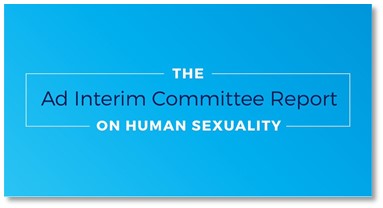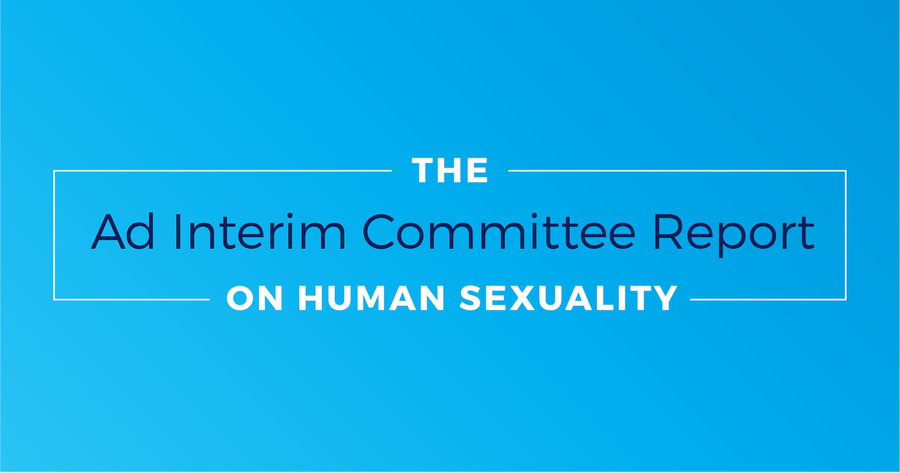 The Presbyterian Church in America (PCA) has been facing a great deal of internal controversy over the last couple years because of the Revoice Conference which was hosted by a PCA church in St. Louis. Last summer, the PCA General Assembly addressed the controversy with two crucial decisions. First, the General Assembly voted to affirm the Nashville Statement and to use the Nashville Statement in discipleship materials produced by the denomination. Second (and I believe more consequentially), the General Assembly voted to appoint a committee to draft a statement of belief on gender and sexuality. Kevin DeYoung and Tim Keller are among those who were tasked with drafting the report.
The Presbyterian Church in America (PCA) has been facing a great deal of internal controversy over the last couple years because of the Revoice Conference which was hosted by a PCA church in St. Louis. Last summer, the PCA General Assembly addressed the controversy with two crucial decisions. First, the General Assembly voted to affirm the Nashville Statement and to use the Nashville Statement in discipleship materials produced by the denomination. Second (and I believe more consequentially), the General Assembly voted to appoint a committee to draft a statement of belief on gender and sexuality. Kevin DeYoung and Tim Keller are among those who were tasked with drafting the report.
The committee has completed its work and has issued its report today. Their work now awaits consideration at the 2021 meeting of the General Assembly where hopefully it will be approved by the denomination. The report aligns with the teaching of the Nashville Statement but roots its affirmations much more explicitly within the Reformed tradition.
The report is really long, but the heart of it is comprised of twelve affirmations that set forth the consensus of the committee and hopefully of the entire denomination. So even if you are not able to read the entire document, you at least need to read the twelve statements. They address every major point of contention in the intramural debate among evangelicals about gender and sexuality.
Here are some of the most significant items that I noted in my reading of the twelve affirmations:
1. The Moral Status of Same-Sex Attraction
“The experience of same-sex attraction is not morally neutral; the attraction is an expression of original or indwelling sin that must be repented of and put to death.” –Statement 4
This has been a major point of contention over the last several years among evangelicals. While all sides recognize that same-sex behavior is sinful, there has been disagreement about same-sex attraction. The Revoice/Spiritual Friendship side of the conversation typically treats same-sex attraction as a morally benign reality or as something to be sanctified. Heath Lambert and I wrote an entire book refuting that perspective. Many others have weighed-in as well. With this statement, the PCA would be putting this issue to rest once and for all—at least in the PCA.
2. Defining Concupiscience
This may seem like an esoteric point, but I assure you that it only seems that way. One of the major reasons for controversy is due to the fact that Roman Catholic notions of concupiscence have influenced the Revoice/Spiritual Friendship side of this conversation in significant ways. Rosaria Butterfield and I wrote an essay two summers ago trying to explain this, and that led to rejoinders from the other side, some of whom were Roman Catholic. Thankfully, the PCA committee report comes down firmly on the side of the Reformed tradition:
“We affirm that impure thoughts and desires arising in us prior to and apart from a conscious act of the will are still sin. We reject the Roman Catholic understanding of concupiscence whereby disordered desires that afflict us due to the Fall do not become sin without a consenting act of the will. These desires within us are not mere weaknesses or inclinations to sin but are themselves idolatrous and sinful.” –Statement 5
3. Whether Temptation Is Sin
Is temptation sinful? This has been a real bone of contention and it’s related to the question of concupiscence. If same-sex desires are morally neutral (as some Revoice/Spiritual Friendship advocates affirm), then of course being tempted by them is morally neutral as well. But if same-sex attraction is an expression of concupiscence, then the temptation itself would also be sinful (I develop this more fully here). I was happy to see the committee affirm what is essentially John Owen’s view on the question:
“When temptations come from without, the temptation itself is not sin, unless we enter into the temptation. But when the temptation arises from within, it is our own act and is rightly called sin.” –Statement 6
4. Whether a Christian Should Identify as a “Gay Christian”
Some on the Revoice side of this conversation have argued that calling oneself a “gay Christian” may mean nothing more than saying one is a Christian who struggles with same-sex desires. Others have argued further that there is nothing wrong with owning a gay identity, and thus there is nothing wrong with embracing the label “gay Christian” so long as one remains sexually chaste. The committee disagrees with this perspective. They write:
“There is a difference between speaking about a phenomenological facet of a person’s sin-stained reality and employing the language of sinful desires as a personal identity marker. That is, we name our sins, but are not named by them.” –Statement 9
“We affirm that those in our churches would be wise to avoid the term ‘gay Christian.’ Although the term ‘gay’ may refer to more than being attracted to persons of the same sex, the term does not communicate less than that. For many people in our culture, to self-identify as ‘gay’ suggests that one is engaged in homosexual practice. At the very least, the term normally communicates the presence and approval of same-sex sexual attraction as morally neutral or morally praiseworthy. Even if ‘gay,’ for some Christians, simply means ‘same-sex attraction,’ it is still inappropriate to juxtapose this sinful desire, or any other sinful desire, as an identity marker alongside our identity as new creations in Christ.” –Statement 10
I couldn’t agree more with this. Owning a gay identity is not a morally neutral act. As the Nashville Statement puts it, “We deny that adopting a homosexual or transgender self-conception is consistent with God’s holy purposes in creation and redemption” (Article 7). For that reason, the way we name ourselves matters. The “gay Christian” label at best risks confusing people about whether or not one believes same-sex attraction to be sinful.
5. Rejection of Marriage-like “Spiritual Friendships”
Some on the Revoice side of this conversation have argued for covenanted “spiritual friendships,” which come across in some cases like a “gay” marriage without the sex. Romance and even physical affection are sometimes a part of these “spiritual friendships” even though they seek to remain celibate. The committee has rejected this clearly:
“We do not support the formation of exclusive, contractual marriage-like friendships, nor do we support same-sex romantic behavior or the assumption that certain sensibilities and interests are necessarily aspects of a gay identity. We do not consider same sex attraction a gift in itself, nor do we think this sin struggle, or any sin struggle, should be celebrated in the church.” –Statement 11
I couldn’t be more grateful to see these twelve affirmations from the PCA study committee. I look forward to seeing the General Assembly take it up next summer. I hope and pray that they will approve it. If they do, it will perhaps be the most comprehensive statement on biblical sexuality adopted by a Protestant denomination.
This is the kind of work that every church and denomination ought to be doing if they haven’t already. Whether they adopt a pre-existing statement like the Nashville Statement, write their own, or do both like the PCA has done, we need churches to do this work and to establish accountability within and among their own congregations. I’m grateful to see the PCA doing this important work. May more follow.





